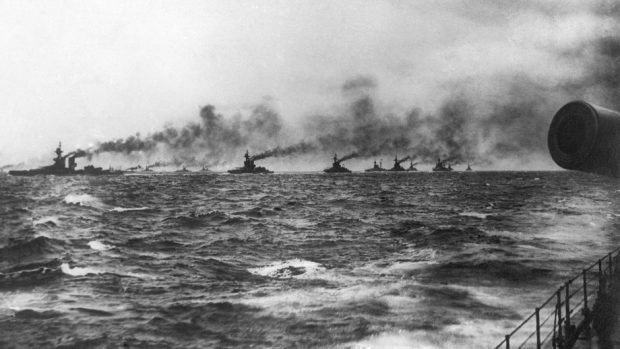A new piece of music by the late composer Sir Peter Maxwell Davies will premier at the Battle of Jutland commemorations in Orkney next week.
The UK Government commissioned the work to mark the centenary of the 1916 clash between the British and German navies and honour those who died at sea during World War I.
Orkney-resident Sir Peter, a former Master of the Queen’s Music, wrote The Golden Solstice just before his death in March.
It will be performed by the choir and organist of Britain’s most northerly cathedral, St Magnus in Kirkwall, at a special service attended by Jutland descendants.
The Princess Royal, Duke of Edinburgh and German President Joachim Gauck will also be at the event.
Culture Secretary John Whittingdale said: “We will remember those who sacrificed so much. Music is a powerful way to help tell their story and honour their memory.
“Sir Peter was one of the UK’s finest composers and through his magnificent work, we will pay tribute to his adopted home of Orkney and to all those who served at sea during the First World War.”
The Golden Solstice lyrics are by George Mackay Brown, a poet who spent his life in Orkney and was a close friend of the composer.
The Kirkwall City Pipe Band, the Band of HM Royal Marines Portsmouth, and the Marinemusikkorps Kiel German Navy Band will also perform at commemorations.
As well as the service in St Magnus, an act of remembrance will be conducted at the Royal Naval Cemetery in Lyness, on Hoy.
Cared for by the Commonwealth War Graves Commission (CWGC), it is the final resting place for some 450 service personnel who died during WWI, including sailors lost at Jutland.
There will also be a remembrance service at sea where a German navy frigate will join a British ship to scatter poppies and forget-me-nots – the German flower of remembrance – into the North Sea at Jutland Bank.
Fought between the Royal Navy’s Grand Fleet and the German High Seas Fleet, more than 100,000 sailors on 250 ships took part in the Battle of Jutland on May 31-June 1, 1916.
More than 8,500 souls, some 6,000 British sailors and 2,500 Germans, lost their lives.
Orkney was chosen as the focus of the UK Government’s commemorations to recognise the battle’s impact on the islands and role they played in hosting the Grand Fleet at Scapa Flow during WWI.
